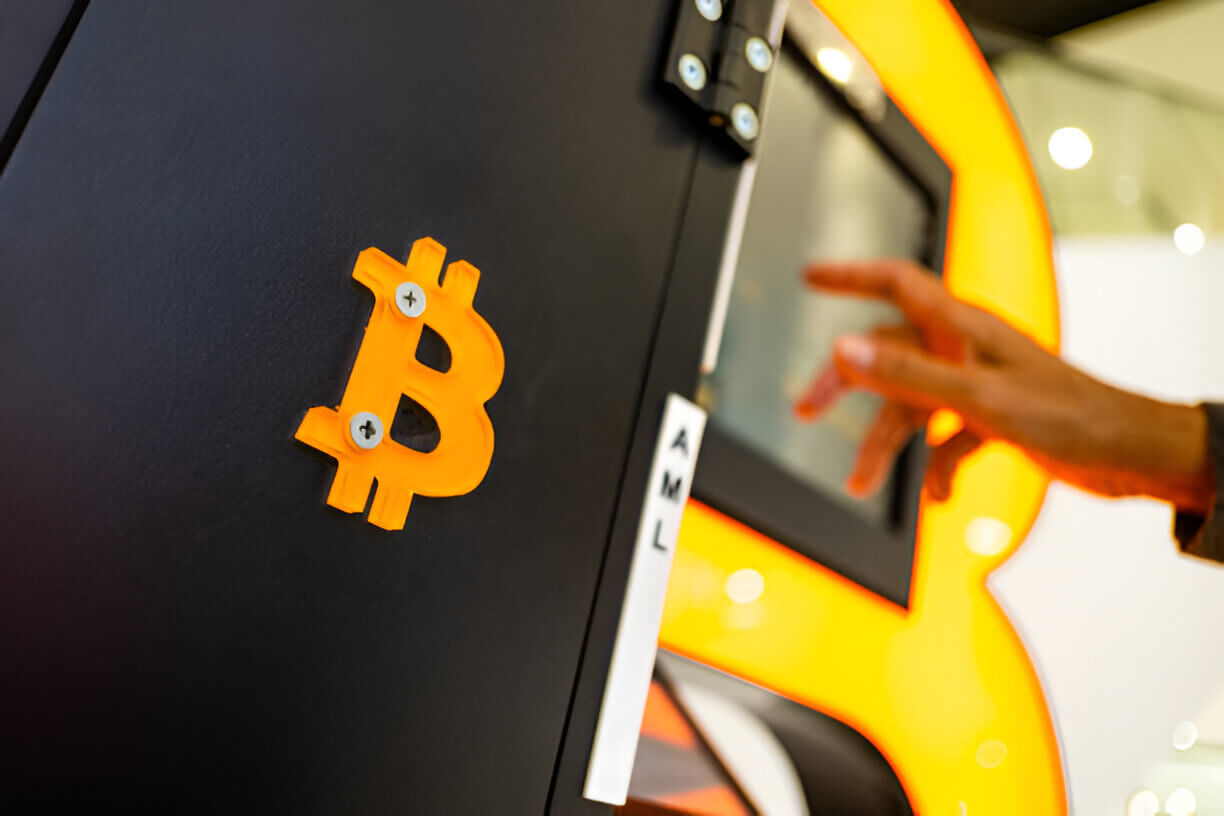As the global economy rises to powerful exigents, Bitcoin becomes more of an appealing investment option that works to safeguard assets and promote self-ownership of resources. The latest political figure who joined the supporters of cryptocurrency is a member of the German parliament named Joana Cotar who discussed cryptocurrency as an effective weapon against inflation. During the interview on October 9, Cotar explained how Bitcoin can become an effective tool for protecting and increasing people’s wealth and economic independence in conditions where global financial systems seem to be getting weaker.
As the value of fiat currencies decreases due to high inflation, Cotar says that people can be free with the help of Bitcoin, without the interference of banks and other state-owned facilities. It is in this article that we shall discuss Cotar’s need for Bitcoin as well as its capacity to fight inflation, not to mention the postscript role that this virtual currency has over the existing financial system.
You might also like: ZachXBT Helps Recover Stolen Funds
Bitcoin as a Solution to Inflation
Through this guide, learners will understand more about inflation as this phenomenon becomes more prevalent in many regions of the world, with global economies recovering from the impact of the COVID-19 pandemic, shifts in geopolitical landscapes, and unstable energy prices. On most occasions, inflation is a ‘stealth’ means of taxing people while slowly reducing the value of the available cash. When central banks issue more currency to tackle problems such as recession, then there is an increase in the amount of money which leads to the devaluation of the money.
Currently, in the interview, Joana Cotar stressed the fact that inflation is ‘taking money away from people on a monthly basis’; this is fact depicts the impact of a high inflation rate on the common populace. Cotar goes on record to say that with its limited supply and no central authority control, Bitcoin really offers a much-needed solution to inflationary and fraudulent fiat money.
You might also like: Crypto Whales Fuel Pepe
Bitcoin stands out from traditional monetary instruments that are controlled by governments and their Central Banks. The maximum number of coins in circulation is 21 million, eliminating the possibility of inflation identified with keen money printing. On this basis alone, many are finding Bitcoin as a perfect store of value in a bid to avoid the loss that comes with inflation.
“This is where Bitcoin is going to correct,” Cotar said in the interview. “That’s why it is about freedom rights of people, regaining sovereignty as individuals.” She pictures a future in which people are free from governments and financial organizations’ control over their wealth, but they can trust decentralized digital assets like Bitcoin.
Financial Sovereignty and Independence
The cryptocurrency Bitcoin is the most successful of this attempt, and one of Cotar’s main points is that it can reinstate economic self-ownership. According to TBS, she supposes that due to the fluctuation in the economies across the globe, it has become so important for people to manage their own money. Banks and fiat money are mostly controlled and influenced by governments, and this is the reason for capital controls, a devaluation of the money supply, and even outright confiscation of a person’s assets, albeit in rare times.
Bitcoin, however, is free from the intervention of any government or even a financial institution. This is one of the reasons why Cotar thinks that Bitcoin has an important potential to help individuals reach a higher level of financial freedom.
You might also like: Crypto Investment Products Record $147 Million in Outflows
“Failure to depend on the government. Not depending on the banks… It is crucial,” Cotar continued as she explained, “Being free as an individual, that’s something dear to my heart.” According to her, Bitcoin allows people to control their money, without worrying that the government will take control of it, or the economy will fluctuate.
This freedom is quite significant, especially during those odd moments when normal banking institutions are struggling. Bitcoin requires no central body of authority because the P2P network it employs enables users to transfer funds and receive them in the process without interference from any third party. For Cotar, this is a major departure from the current cultures of power relations undermining people-centered distributive democracy.
Bitcoin’s Role in Financial Inclusion
But in addition to the financial benefits such as fighting inflation and encouraging people to become financially independent, Cotar also pointed out that Bitcoin can help solve many problems regarding the lack of banking services across the globe. In many developing nations, a huge number of people are either financially underserved or completely locked out from the conventional banking sector. This feature can worsen the economic potential and hinder the social mobility of people, who have no real possibilities for becoming financially independent.
Indeed, Bitcoin enables Peer-to-Peer cash settlement without reference to a sovereign state’s authority or control – a quality that could close this gap. The only requirement needed to join the Bitcoin network is an internet connection and an e-wallet. This ease of access makes it a very effective solution for financial mobilization, especially in regions, where banking services are nonexistent or insufficient.
You might also like: UAE Introduces Tax Exemptions for Crypto
Self-ownership of money has been made possible through legal tender by Bitcoin according to Cotar. “As with PayPal the kind of impact you receive from Bitcoin, the liberation that comes with the economy from Bitcoin, the effectiveness also in Bitcoin – there are many more aspects as to why Bitcoin is good for the world,” she giggled.
Thus, where conventional banking is unavailable, micro-bitcoin can help people protect their assets, transfer money, or even engage in the world economy. Unleashing the power of distribution, bitcoin can emancipate millions of people globally and bring new opportunities to lift the deprived from the race of deficit.
Germany’s Crackdown on Crypto Exchanges
As for Cotar and Bitcoin, where Cotar sees Bitcoin as a tool for people to remove barriers to financial systems, German regulators were not always so glowing in their view of cryptocurrencies. In the recent past, the country’s financial authorities have been arresting individuals involved in performing unlawful activities in cryptos, which has seen them shutting down 47 crypto exchange platforms.
These platforms were allegedly used for buying and selling in a decentralized manner, without the mandatory client identification process, which is against Germany’s AML laws. These platforms were said to allow people to get rid of and buy regular cryptocurrencies with little supervision, thus laundering large sums of cash.
You might also like: Mog Coin and Popcat Jump 10% as Crypto All-Stars Surpass $2M
German officials said some of the exchanges were used by cybercrime gangs, including ransomware groups, and darknet vendors to launder the proceeds of their criminal activities into legal money. With the increased uptake of cryptocurrencies, their misuse comes hand in hand and this crackdown proves this assertion.
While Joana Cotar promotes Bitcoin as a way of owning financial freedom, the shutdown of these exchanges are alert of what it holds for decentralized digital assets. The toughest decisions regarding cryptocurrencies, their scalability, and functionality as well as citizens’ freedoms and liberties will remain an essential question that governments need to answer in the future.
The Future of Bitcoin: Insights for Germany and Beyond
Although bitcoin is now gaining popularity all over the globe, its further existence in Germany is questionable. On one side, advocates such as Joana Cotar are calling for expanded use of Bitcoin as an inflation hedge and to further people’s self-ownership of their finances. On the other hand, German regulators are cautious about their engagements seeking to address illegality while enforcing current legal provisions on the operation of financial markets.
In a way, while striving to create an enabling environment for innovation the attractiveness of FinTech will have to be balanced by ways and means of fighting financial crime effectively. In the next few years, thanks to the increasing popularity of Bitcoin and other cryptocurrencies, Germany will have to establish laws and ordinances that regulate its usage to ensure that nobody is defrauded while at the same time supporting the crypto markets.
You might also like: SUI Price May Drop ‘Soon’ as 71% of Traders Go Short on Binance
Concerning the Bitcoin promotion, Joana Cotar nurtures the image of Bitcoin and digital assets as a legitimate and legal currency. With the growing global audience that is turning against inflationary policy and centralization of the monetary system and financial infrastructure, Bitcoin as a decentralized means of protection of value and the pursuit of greater individuals’ financial freedom is still attractive.
If the trends and openings continue to develop in the future several years, Bitcoin is going to be a significant participant in the worldwide economy and financial markets as a form of digital currency, medium of exchange, and store of value for people. Whether it will fully adopt Bitcoin or not is still unclear but the interest in digital currencies continued to increase which will definitely not cease the discussion about financial freedom and financial liberty.
Conclusion
That Joana Cotar is a believer in Bitcoin’s approach to beating inflation is an indicator of how decentralized digital assets are gaining traction amidst uncertain economic futures. Since inflation has become a natural process in the modern world, eliminating the value of the existing money, Bitcoin gives people a chance to become financially free and have their own money. In addition, the use of Bitcoin in increasing financial access to the disadvantaged population squarely makes it an empowering platform the world over.
But on the downside, the recent agencies’ crackdown on the illicit operations of cross-border bitcoin trading in Germany shows a glaring complication involved with pushing specific digital currency categories. As governments attempt to outline the regulations that will encourage innovations while seeking to thwart any security measures from Bitcoins, the future of the virtual currency has promises and unknown prospects.
In the meantime, it is important to recall Joana Cotar’s advocacy of Bitcoin and the discussion it has generated concerning cryptocurrencies and their reorientation of lived financial experience with the global economy and financial sovereignty.
You might also like: Trader Urges Crypto Twitter to Focus on Purpose Over Debates











